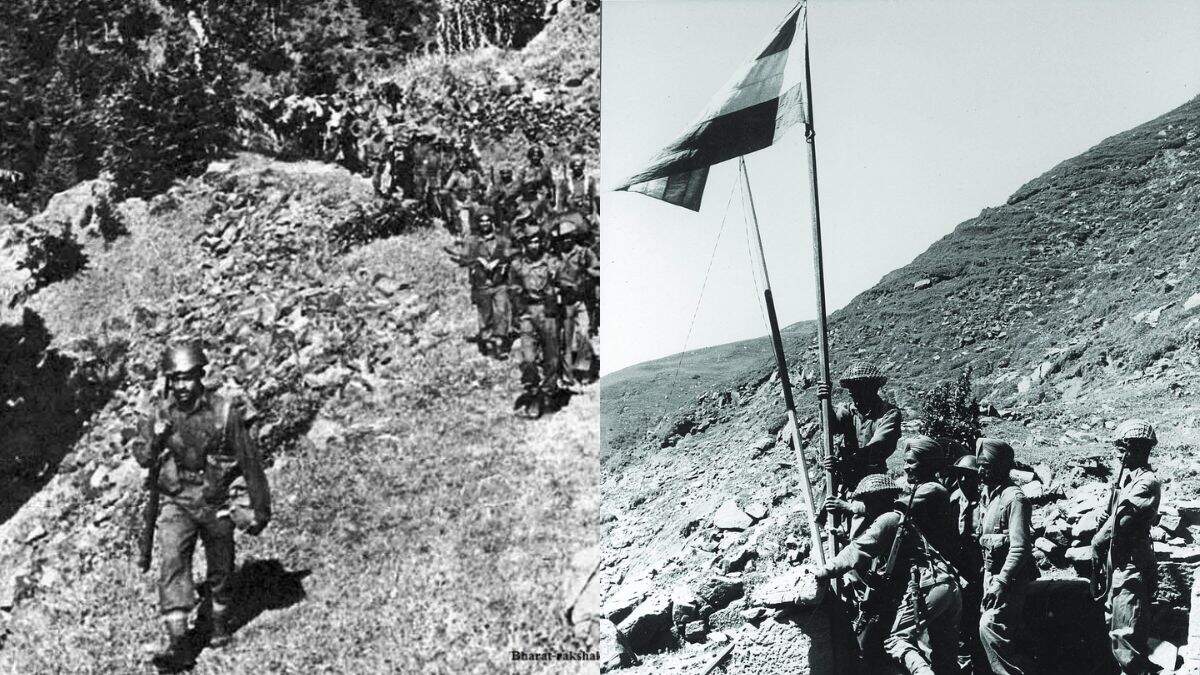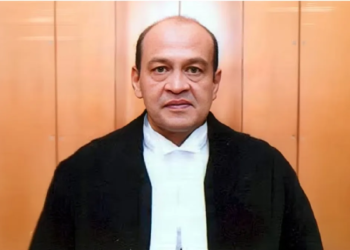In the 1965 Indo-Pakistan war, our army withdrew Haji Pir Pass from Pakistan, but later the Congress returned it … ‘Prime Minister Narendra Modi said this during a debate on Operation Sindoor in the Lok Sabha. In fact, PM Modi responded to the opposition when the Congress was trying to surround the government on the issue of national security. After mentioning this in his statement by PM Modi, Haji Pir Pass is once again being discussed. In this way, let us know what is the story of Haji Pir Pass and when the army captured it in the 1965 war, why was it returned to Pakistan.
How did India take over the Haji Pir Pass in 1965?
First of all, let us tell you what is Haji Pir Pass? It is at an altitude of 2,637 meters in the Pir Panjal range and has always been a major geo-way. Even during the Mujahideen invasion of 1947, it was a major route of infiltration. But when a war broke out between India and Pakistan in 1965, on 15 August 1965, the Indian Army crossed the ceasefire line to combat Pakistani shelling and infiltration. In this operation called Bakshi, the 19th Infantry Division led by Major Ranjit Singh Dayal attacked with 1 paragraph.
In this operation, at 10:30 am on August 28, Major Dayal’s team took behind the Pakistani soldiers and captured the Haji Pir Pass. This victory reduced the Poonch-Uri route from 282 kilometers to 56 km and strengthened India’s military control. India’s occupation on this pass meant that India could close the natural route used by intruders, but this control did not last long.
Along with this, in this 1965 war, the Indian Army took possession of Haji Pir Pass as well as Haji Pir Bulj. Lieutenant General Ranjit Singh Dayal (retired) (then Major), who is called the hero of the Haji Pir’s fight, said in an interview in 2002, ‘Haji Pir Pass would give India a certain strategic lead. It was a mistake to return it. Our people do not read maps.
Then why did India return it?
Let us tell you that the Tashkent Agreement was signed on January 10, 1966 by the mediation of the Soviet Union in the 1965 war and the war ended after that. In this, both India and Pakistan were asked to retreat on their old border. According to reports, under the terms of the Tashkent Agreement, India left the Haji Pir Pass and 1,920 sq km possession area, while Pakistan returned the area of 550 square kilometers including Chamb.
Without mentioning the Haji Pir Pass, the agreement stated, “The two sides will make every effort to maintain good neighboring relations between India and Pakistan according to the United Nations Charter. They confirm their obligation under the charter that they will not resort to use force and resolve their disputes in peaceful ways.” The purpose of this agreement was to restore peace, but nothing was said about the anti-War Treaty or Guerilla War, which has been criticized in India till date.
Did India do this under any strategy?
India’s decision to return Haji Pir was taken due to six near the Akhnoor bridge, which came under Pakistan’s control and was an important supply line. Major General Sheru Thapliyal (retired) wrote in his 2015 article on the Strategic Study India portal, “When the talks between India and Pakistan started with the intervention of the Soviet Union in January 1966, the Chhamba Sector was an important issue for India. By then, the Pakistani army had reached the Fatwal Rij only four kilometers away from Akhnoor, so that the Pakistani Army had reached the Fatwal Rij, so that they started to take over the expedition to the Akhnur. Can. “
Chhamb Sector, Munnavar, West of the Tawi River is also a major defensive post of India. It is also important for the safety of the only perennial road connecting Jammu to Poonch and Kashmir Valley. Journalist Kuldeep Nayar, a member of the Prime Minister Shastri’s party, claimed that threats to stop the United Nations’ veto support on Soviet pressure and Kashmir affected the Prime Minister’s decision, who died the next day under mysterious circumstances.
Lieutenant General Dayal (retired) and other critics argue that maintaining Haji Pir would reduce infiltration, which continues from the pass today. Lieutenant General DB Shekatkar (retired) told Rediff India News in 2015, “If we had retained that outpost, the situation would have been different.” This return was considered a strategic mistake and criticized by experts and stakeholders. He said that this promoted Pakistani infiltration and damaged India’s long -term security in Kashmir.








